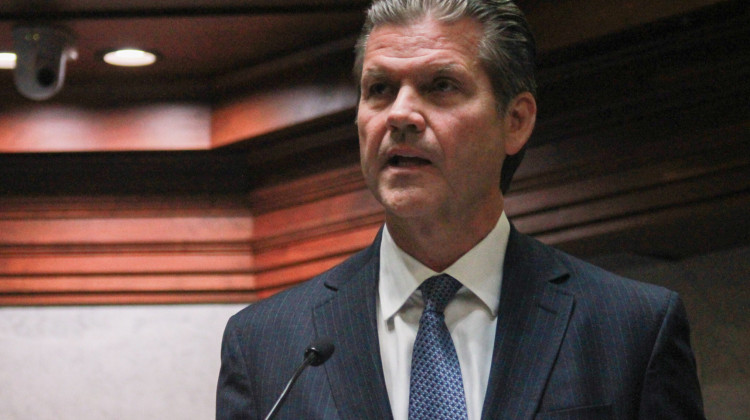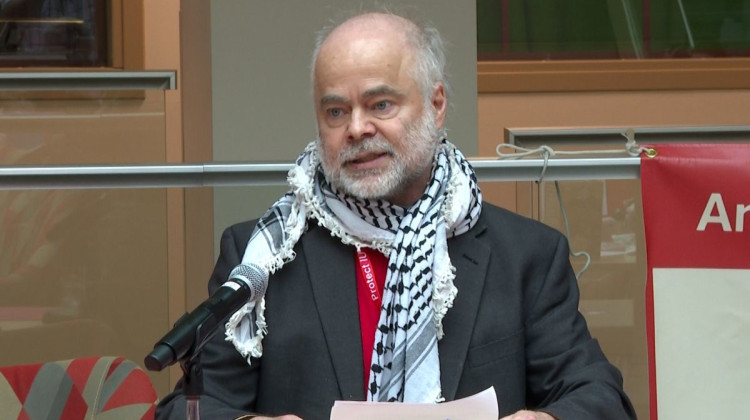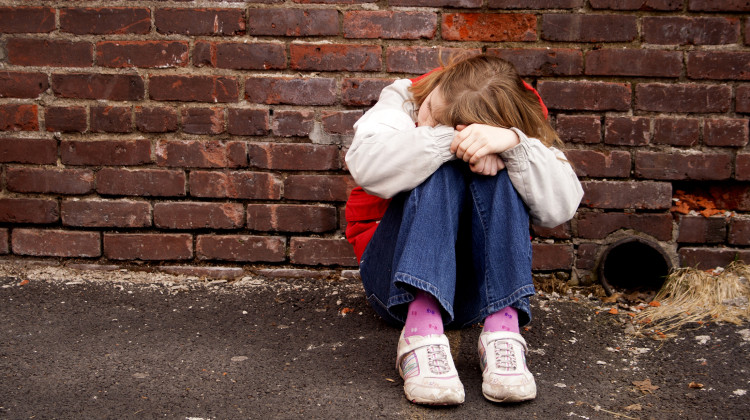Indiana is selecting five counties Allen, Jackson, Lake, Marion and Vanderburgh to test its pre-k pilot program before it considers whether it should be expanded to the rest of the state. Only parents in those five counties will be eligible to receive state dollars to pay for preschool, but local leaders in counties that didn’t qualify for the program are still seeking ways to make early childhood education a priority.
A preschool classroom can be overwhelming. Take this one at Bloomington Montessori for example.
There’s a few dozen students scattered around the room, each doing a different activity. One child is painting on an easel, two boys are building and knocking down a tower of blocks, and a girl is pouring water from one cup into another over a sink.
Teacher Eve Cusack attempts to stop all of this activity and corral the children outside.
Designing, finding, or affording a high quality preschool program is often just as confusing to navigate as the classroom itself. But the state, through the Family and Social Services Administration, is creating a new preschool pilot program that will provide low-income families with funds to send their four year olds to a high-ranked preschool program.
The vouchers will only be available to families in the five selected counties, which were chosen from an original group of 18 that met certain criteria.
Leaders looked at the number of children 4-years-old, below 127 percent of the federal poverty level; the capacity of the eligible programs within each county; and the percentage of children living in poverty within that county.
Melanie Brizzi is in charge of early childhood education at the FSSA and says the 18 finalist counties submitted statements of readiness to make their case to be a host county. Brizzi says the five counties were chosen based on multiple criteria.
“Geographical diversity, rural, non-rural, and the ability to meet a longitudal study, as well as those other components like the community’s past commitment to education,” she said.
The legislation that created the pilot program requires that longitudal study Brizzi mentions. It’s designed to keep tabs on the children receiving the money to see whether they perform better academically in the long run.
In the counties that were not chosen, educators are not sitting around waiting for the state to complete that study. Hilda Burns helped write Howard County’s statement of readiness as a part of the pilot program application process. The county was selected in the end, but Burns says the need for pre-k is still great.
"Presently, in Howard County 42 percent of children between birth and 5-years of age are living in poverty, therefore there are a large number of 4-year olds in Howard County that are not currently attending a quality preschool program because they don’t have the funds," Burns said.
Not being chosen after weeks of preparing the application, Burns says the emphasis on preschool in Howard County won’t disappear.
"Oh no. In fact, whether we receive these funds or not, I think it helps us move in the right direction," she said "And that’s where we all are working, for the mission and vision of early education and I think anytime you bring a group together, there’s a renewed energy and focus and I think we will only get better because of it."
This sentiment is not unique to those in Howard County.
Brown County was knocked out of the running early on in the process. The county didn’t meet many of the initial requirements to host the program, including not having providers rated at a Level 3 or 4 under the state’s Paths to Quality ranking system.
But according to the school corporation’s Director of Student Services Alan Kosinski , that’s because the preschool program run through the school district is the only option for families.
And despite not qualifying for the state-run preschool program, Kosinski says the school district started conversations with a local foundation to provide preschool funding to Brown County’s low-income families.
"I think the awareness that was growing because of the Department of Education and State of Indiana initiative it kind of came to mind," Kosinski said. "It had a higher visibility that’s going on, how can we get all of our kids into preschool."
For Allen, Jackson, Lake, Marion and Vanderburgh counties that were selected, the next year will be spent recruiting families to the program and working with local providers who will serve the pre-k students.
 DONATE
DONATE






 View More Articles
View More Articles


 Support WFYI. We can't do it without you.
Support WFYI. We can't do it without you.